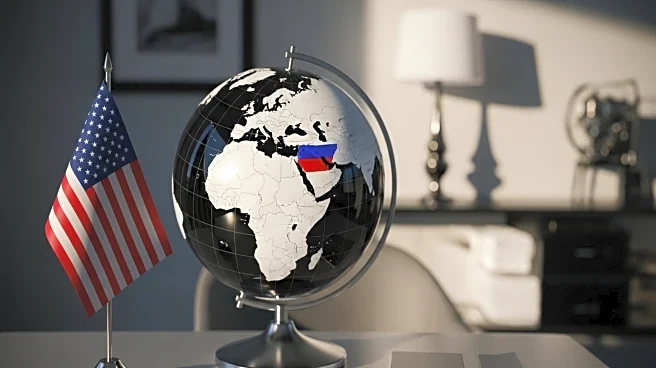What's Happening?
President Trump has indicated readiness to move to a 'second stage' of sanctions against Russia, though details remain unclear. This announcement follows his history of issuing threats without substantial follow-through, leading to skepticism among experts. The proposed sanctions could involve increased tariffs on countries purchasing Russian oil, such as India, which recently faced a 50% tariff. The potential measures might target buyers, traders, and refineries involved in Russian oil transport, as well as ports servicing the 'shadow fleet.' Despite Trump's rhetoric, the timing and specifics of these sanctions remain uncertain.
Why It's Important?
The potential escalation of sanctions against Russia could significantly impact global energy markets and diplomatic relations. If implemented, these measures might pressure countries like India to reduce their reliance on Russian oil, potentially reshaping international trade dynamics. However, skepticism about Trump's commitment to enforcing these sanctions raises questions about their effectiveness. The situation underscores the complex interplay between U.S. foreign policy and global economic interests, with potential ramifications for energy prices and geopolitical alliances.
What's Next?
The next steps depend on Trump's ability to garner support from European allies and his willingness to enforce the proposed sanctions. The U.S. Treasury Secretary has emphasized the need for stronger European backing to increase economic pressure on Russia. Discussions on the Sanctioning Russia Act, which could impose tariffs up to 500% on countries buying Russian energy, are ongoing but have faced delays. The outcome of these discussions will be crucial in determining the future of U.S. sanctions policy.








